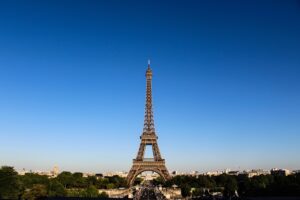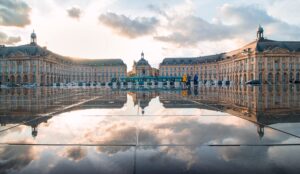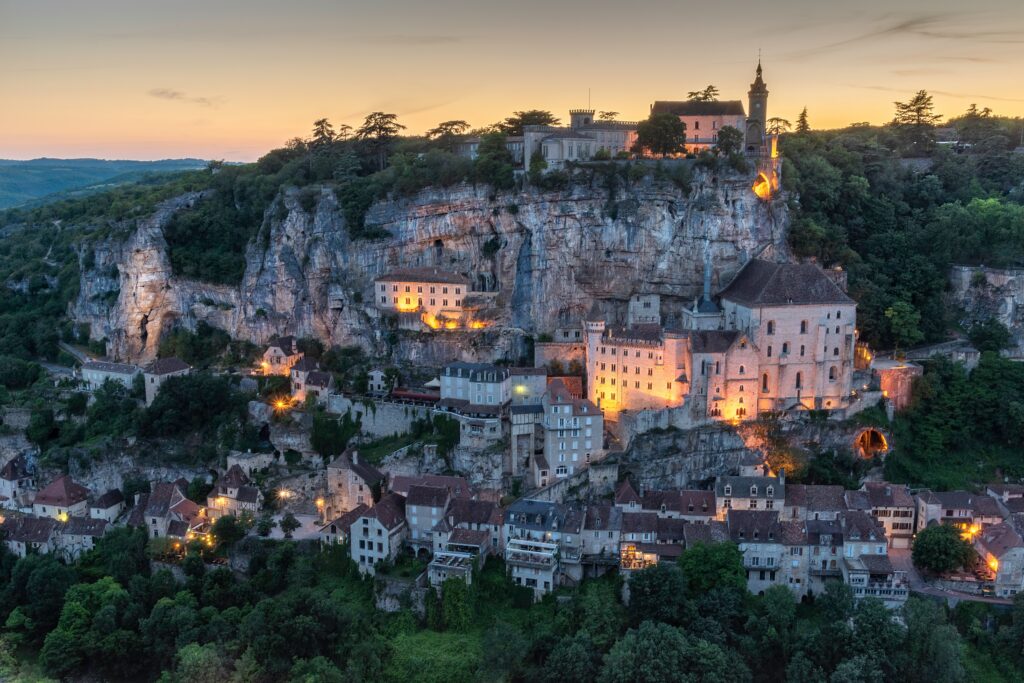France
France, located in Western Europe, is one of the most influential countries globally, known for its rich history, diverse culture, and significant contributions to art, science, and politics. Bordered by Belgium, Luxembourg, Germany, Switzerland, Italy, Spain, and Andorra, and surrounded by the Atlantic Ocean to the west and the Mediterranean Sea to the south, France’s strategic location has made it a key player in European and global affairs.
Historical Background
France’s history is characterized by its transformation from a collection of feudal territories into a unified nation-state. The early history of France includes the Gauls, a Celtic people who were conquered by Julius Caesar in the 1st century BC. The region became part of the Roman Empire, which left a lasting impact on French culture and infrastructure.
The fall of the Roman Empire led to the rise of the Franks, a Germanic tribe that established the Merovingian and later Carolingian dynasties. The most notable figure from this period is Charlemagne, who expanded the Frankish Empire and became the first Holy Roman Emperor in 800 AD.
The Capetian Dynasty, beginning with Hugh Capet in 987, solidified the French monarchy and laid the foundation for modern France. The country experienced significant events such as the Hundred Years’ War with England, which ended in 1453, and the French Revolution of 1789, which marked the end of absolute monarchy and the rise of the French Republic.
The 19th and 20th centuries saw France play a central role in global conflicts, including the Napoleonic Wars, World War I, and World War II. The post-war period led to the establishment of the Fifth Republic under Charles de Gaulle and a period of economic growth and modernization.
Cultural Heritage and Arts
France is renowned for its profound contributions to art, literature, and philosophy. The Renaissance period saw the flourishing of French art and architecture, with figures like Leonardo da Vinci and François Rabelais influencing European culture.
The French Impressionist movement, including artists such as Claude Monet, Édouard Manet, and Pierre-Auguste Renoir, revolutionized painting with its emphasis on light, color, and everyday subjects. The Louvre Museum in Paris, housing the Mona Lisa and other masterpieces, is one of the world’s most famous art institutions.
French literature includes influential works by writers like Victor Hugo, Gustave Flaubert, and Marcel Proust, whose novels explore themes of society, love, and identity. The Café culture of Paris and other cities has been a meeting place for intellectuals, artists, and writers throughout history.
French cuisine is celebrated globally for its refinement and diversity. French gastronomy includes a wide range of dishes, from coq au vin (chicken braised in red wine) and bouillabaisse (fish stew) to croissants and macarons. The country is also known for its wines and cheeses, with regions like Bordeaux, Burgundy, and Champagne producing some of the finest beverages.
Geography and Landscapes
France’s geography is marked by its varied landscapes, which range from the Alps and Pyrenees mountains to the plains of the Loire Valley. The country’s diverse terrain offers a range of outdoor activities, from skiing in the Alps to hiking in the Pyrenees.
The French coastline stretches from the rugged cliffs of Normandy to the sandy beaches of the French Riviera. The Mediterranean coast is known for its sunny weather and glamorous resorts, while the Atlantic coast features picturesque fishing villages and dramatic sea views.
The Loire Valley, often referred to as the “Garden of France,” is famous for its vineyards, châteaux, and beautiful scenery. The Provence region, with its lavender fields and olive groves, is another highlight of France’s natural beauty.
Culinary Excellence
French cuisine is renowned for its sophistication and variety. The country’s culinary tradition includes both hearty regional dishes and elegant fine dining. Baguettes, croissants, and brie are staples of French cuisine, reflecting the country’s dedication to quality ingredients and traditional techniques.
Escargots (snails) and foie gras (duck or goose liver) are examples of French delicacies, while ratatouille and cassoulet showcase the hearty, rustic flavors of regional cooking. Crêpes and tarte tatin are beloved desserts that highlight French pastry skills.
France’s wine culture is equally impressive, with a wide range of options from Chardonnay and Sauvignon Blanc to Pinot Noir and Merlot. The country’s commitment to viticulture is evident in its prestigious wine regions and annual harvests.
Economy and Modern Influence
France has a diverse economy, with significant contributions from sectors such as aerospace, automotive, pharmaceuticals, and luxury goods. The country is a global leader in industries such as fashion, with Paris being a major hub for international fashion and design.
Tourism plays a crucial role in France’s economy, with millions of visitors flocking to landmarks such as the Eiffel Tower, Notre-Dame Cathedral, and the Palace of Versailles. Paris, known as the “City of Light,” attracts tourists with its art, culture, and cuisine.
France is a founding member of the European Union and plays a significant role in international politics and economics. Its influence extends globally through its cultural diplomacy, trade, and contributions to international organizations.
In summary, France is a country of historical significance, cultural richness, and natural beauty. Its legacy in art, literature, and cuisine, combined with its dynamic modern economy, make it a key player on the world stage and a fascinating destination for travelers.
Posts
FAQ

France is renowned for its rich cultural heritage, iconic landmarks, world-class cuisine, and artistic contributions. After all, it is famous for the Eiffel Tower, Louvre Museum, exquisite wines, gourmet cuisine, high fashion, and picturesque landscapes.
The best time to visit France is during the spring (April to June) and fall (September to October) when the weather is pleasant, and tourist crowds are moderate. Except that, Summer (July and August) is ideal for beach destinations, while winter (December to February) is perfect for skiing in the Alps.

Must-visit cities in France include Paris for its cultural treasures, Nice for the French Riviera’s charm, Lyon for gastronomy, Bordeaux for wine enthusiasts, and Strasbourg for its picturesque Alsatian architecture. All in all, each city offers a unique experience.
France is a culinary paradise. Yoy can try classic dishes like coq au vin, escargot, and bouillabaisse. Also, visit local boulangeries for fresh baguettes, try regional cheeses, and explore patisseries for delightful pastries. Of course, wine and cheese tastings are a must for gastronomic enthusiasts.
In tourist areas and major cities, many people speak English. However, learning a few basic French phrases is appreciated and can enhance your travel experience, especially in smaller towns and rural areas.



